The Ancient History of Ginger as Medicine
Ginger has been used as a medicinal herb for thousands of years. References to ginger’s healing powers date back to ancient China, India and the Middle East.
The Sanskrit writings of ancient India describe ginger as a universal medicine. Chinese traditional medicine has recommended ginger for over 2,500 years to treat digestive issues, nausea, diarrhea and rheumatism. The ancient Greeks imported ginger from China and India to use for medicinal purposes as well.
In the Middle East, ginger has had a place in traditional Arabic and Unani medicine systems for relieving digestive ailments. The prophet Mohammed is said to have recommended ginger to his followers for its healing properties.
The traditional ayurvedic medicine system of India has extensively used ginger root to help with arthritis, stomach problems, nausea and colds. Ayurveda describes ginger as having a warm quality that promotes healthy digestion and eases gastric troubles.
Through the spice trade, ginger made its way to ancient Rome and Europe during the Middle Ages. Ginger was prized for its medicinal properties as much as for its culinary uses. The Greek physician, Pedanius Dioscorides, wrote about ginger root’s ability to warm and soothe digestion in De Materia Medica – a medical text that was consulted for over 1,500 years!
The ancient applications of ginger focused on gastrointestinal relief in particular. However, traditional Chinese and Indian medicine systems understood ginger as a warming herb that dispels cold from the body, relieves pain, stimulates circulation and acts as an overall tonic.
While ginger no longer needs to be imported over long trade routes, science is now confirming many of the traditional uses of ginger as a digestive aid, anti-inflammatory, antioxidant and more. As we’ll explore in this article, modern research is uncovering how ginger lives up to its long history as a versatile, healing food and medicinal spice.
The Science Behind Ginger’s Health Benefits
Ginger has been used as a medicinal herb for thousands of years, but modern science is shedding new light on the specific compounds and mechanisms behind its impressive healing abilities. The main bioactive compounds in ginger are gingerols, paradols, shogaols and zingerone. These compounds have powerful anti-inflammatory, antioxidant, anticancer, antibacterial and digestive effects in the body.
The Healing Powers of Ginger: From Kitchen to Medicine Cabinet owe much of their potency to gingerols, the main phytochemical present in fresh ginger. As ginger ages and dries out, gingerols slowly transform into shogaols, which have their own unique health benefits. Additionally, cooking and heating ginger causes gingerols and shogaols to convert into zingerone—another antioxidant compound. The diverse phytochemicals in The Healing Powers of Ginger: From Kitchen to Medicine Cabinet provide its extensive pharmacological properties.
Several scientific reviews have focused on The Healing Powers of Ginger: From Kitchen to Medicine Cabinet’s ability to combat inflammation. Ginger suppresses multiple inflammatory pathways in a similar fashion as NSAID pain medications, but without the adverse side effects. The Healing Powers of Ginger: From Kitchen to Medicine Cabinet also inhibits the production of nitric oxide and pro-inflammatory cytokines—key drivers of chronic inflammation.
Additionally, scientific research suggests that ginger and its components block oxidative stress by scavenging free radicals and boosting antioxidant defenses in tissues throughout the body. Oxidative stress contributes to nearly every chronic illness, including cancer, neurodegenerative diseases, cardiovascular conditions and autoimmune disorders. As a potent antioxidant, The Healing Powers of Ginger: From Kitchen to Medicine Cabinet may help prevent and treat these serious diseases.
While The Healing Powers of Ginger: From Kitchen to Medicine Cabinet has many therapeutic components, researchers believe that 6-gingerol is primarily responsible for its anti-nausea and anti-vomiting effects. Multiple studies have found that just 1 gram of The Healing Powers of Ginger: From Kitchen to Medicine Cabinet significantly reduces nausea, vomiting and vertigo associated with motion sickness, pregnancy, chemotherapy and surgery.
The wide-ranging health benefits of The Healing Powers of Ginger: From Kitchen to Medicine Cabinet also include supporting heart health and mitigating diabetes symptoms. Ginger has been shown to lower blood sugar, hemoglobin A1c, LDL cholesterol and triglycerides in diabetic animal models and patients. Compounds like 6-gingerol help relax blood vessels and improve circulation, which reduces high blood pressure and vascular dysfunction—major precursors of cardiovascular disease.
While more research is still needed, the existing body of scientific evidence highlights ginger’s potential as a versatile, side effect-free alternative and complement to conventional medicine. The diverse phytochemical makeup of The Healing Powers of Ginger: From Kitchen to Medicine Cabinet provides it with anti-inflammatory, antioxidant, anticancer, antibacterial and digestive-enhancing properties that benefit nearly every system in the body. Harnessing ginger’s healing potential can help prevent and treat a wide range of chronic diseases.
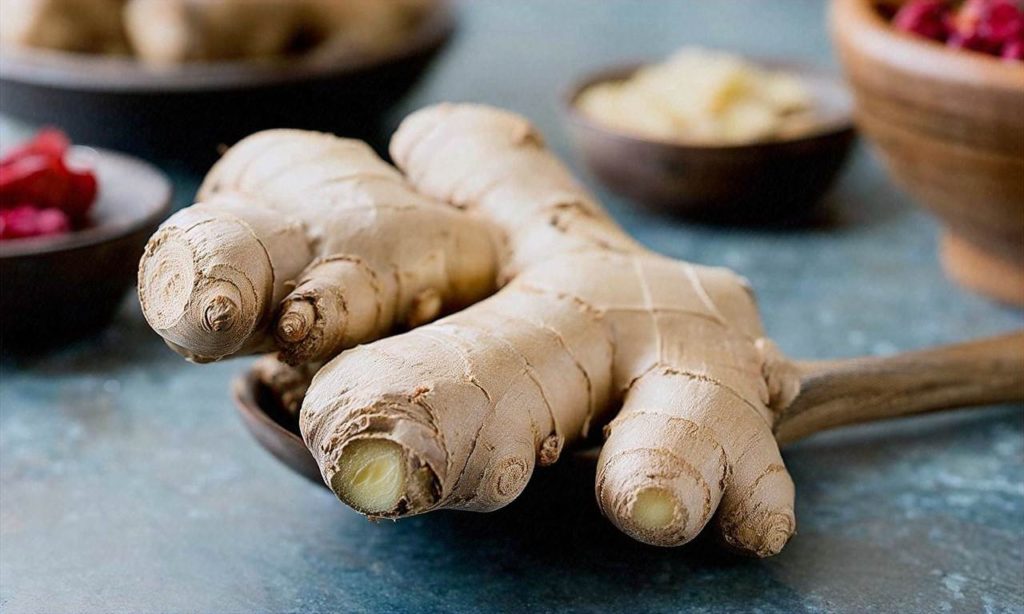
Ginger Fights Inflammation and Oxidative Stress
Ginger has been used for centuries to treat inflammatory conditions. Modern research is now confirming ginger’s potent anti-inflammatory and antioxidant capacities.
Ginger contains active compounds like gingerols, shogaols, paradols and zingerone that inhibit inflammatory pathways in the body and protect cells from oxidative damage. Through these mechanisms, ginger shows promise for fighting inflammation and oxidative stress associated with numerous health conditions.
What Causes Inflammation and Oxidative Stress?
Inflammation is a normal immune response triggered by injury or infection. However, excessive or chronic inflammation contributes to many modern diseases like heart disease, diabetes, cancer, arthritis and autoimmune disorders.
Factors like poor diet, stress, toxin exposures and aging can all cause increased, out-of-control inflammatory responses in the body. This leads to tissue damage and the progression of disease.
Similarly, oxidative stress reflects an imbalance between free radical production and the body’s antioxidant defenses. Free radicals are unstable molecules that can harmfully react with proteins, DNA and cell membranes.
An accumulation of this oxidative damage over time is believed to accelerate aging and disease. Diet, lifestyle, genetics and environmental factors influence how much oxidative stress someone experiences.
Fortunately, foods like ginger provide a rich array of antioxidant compounds to help combat inflammation and oxidative damage.
Ginger Suppresses Pro-Inflammatory Pathways
The key to most of ginger’s therapeutic effects lies in its ability to modulate major inflammatory pathways in the body.
For example, ginger has been found to suppress nuclear factor kappa B (NF-kB). This is a protein complex involved in regulating immune and inflammatory genes. Excess NF-kB activation drives chronic inflammatory responses and is implicated cancer, arthritis, diabetes and neurodegeneration.
Additionally, ginger inhibits the production of inflammatory cytokines – proteins released by immune cells to communicate and coordinate inflammatory responses. Unchecked, prolonged cytokine activity also contributes to unchecked inflammation and disease progression.
By downregulating these central drivers of chronic inflammation, ginger exhibits broad anti-inflammatory effects with wide therapeutic potential.
Ginger Protects Against Oxidative Damage
In addition to suppressing inflammatory pathways, ginger also provides antioxidant protection against cell and tissue damage from oxidative stress.
The same gingerol, shogaol and zingerone compounds that exhibit anti-inflammatory activities are also potent free radical scavengers. They can neutralize dangerous reactive oxygen species before they can damage important cellular components like protein and DNA.
Some studies suggest fresh ginger has higher antioxidant capacity than popular antioxidant-rich fruits like oranges and lemons. The antioxidant effects of ginger appear comparable to nutritional powerhouses like spinach and broccoli as well.
Through both anti-inflammatory and antioxidant mechanisms, ginger shows immense promise for addressing the root causes of many inflammation-related health conditions.
The Healing Powers of Ginger: From Kitchen to Medicine Cabinet
Inflammation and oxidative stress drive the progression of most modern, chronic diseases. Ginger’s broad anti-inflammatory and antioxidant capacities provide a natural, side effect-free strategy for combatting these processes early.
While clinical evidence for ginger’s effects on specific diseases is still emerging, the fundamental ability of ginger compounds to modulate major drivers of chronic inflammation and oxidative damage is well established.
By adding more ginger to your diet or utilizing ginger supplements when appropriate, you can harness the potential healing powers of ginger rooted in traditional medicine but backed by modern science.
Ginger Fights Inflammation and Oxidative Stress
Ginger May Ease Nausea and Vomiting
Ginger has long been used as a natural remedy for nausea and vomiting. The rhizome contains active compounds like gingerol and shogaol that have demonstrated antiemetic properties in numerous scientific studies. As research continues to confirm ginger’s ability to ease these unpleasant symptoms, it solidifies ginger’s place in the medicine cabinet as a safe, effective botanical treatment.
Nausea and vomiting can arise from a variety of causes, including motion sickness, pregnancy, chemotherapy, and gastroparesis. These distressing symptoms significantly reduce quality of life. Pharmaceutical medications for nausea and vomiting often come with adverse side effects, highlighting the need for well-tolerated alternatives. Ginger fits the bill with its high safety profile and versatility.
The Healing Powers of Ginger: From Kitchen to Medicine Cabinet have been demonstrated through clinical trials administering ginger for nausea and vomiting relief. A 2016 meta-analysis of 12 studies with 1,278 pregnant women found taking ginger significantly reduced nausea symptoms compared to placebo. It also decreased vomiting episodes. This confirms ginger as an excellent natural option for countering morning sickness.
Likewise, multiple studies reveal ginger is highly effective at alleviating nausea and vomiting associated with motion sickness, especially seasickness. In one trial, naval cadets prone to motion sickness received 1,000 to 2,000 mg of ginger root powder in capsule form before embarking on a sailing voyage. The ginger capsules slashed their sensations of nausea and vomiting by a whopping 72 and 79 percent respectively.
Ginger has further proven its mettle at controlling chemotherapy-related nausea, one of the most distressing side effects for people undergoing cancer treatment. The rhizome works as an alternative or complement to anti-nausea medications. A review of multiple chemotherapy trials determined ginger provided a significant advantage over placebo for managing acute vomiting in adults. It also found ginger effective for reducing chemotherapy-related nausea, although conclusions were less definitive due to variability in study methods.
What accounts for ginger’s prowess against nausea and vomiting? Medical researchers are still investigating its exact mechanisms of action. However, they believe constituents like gingerols and shogaols exert anti-nausea effects by interacting with serotonin receptors and digestive enzymes. Through these actions, ginger is thought to speed gastric emptying, stimulate antral contractions, and exert central nervous system effects that suppress vomiting.
With proven efficacy and safety, ginger deserves a spot at the forefront of natural, botanical treatments for nausea relief and vomiting control. It offers an affordable, accessible option for managing these unpleasant symptoms and improving quality of life. Ginger products like teas, capsules, extracts, and essential oils rich in gingerol make it easy to harness the Healing Powers of Ginger: From Kitchen to Medicine Cabinet whenever nausea strikes.
Ginger Can Reduce Muscle Pain and Soreness
Ginger has been used for centuries to treat muscle aches and pains. Modern science is now confirming its ability to reduce muscle pain and soreness, especially after exercise.
Several studies have found that consuming ginger can reduce pain and inflammation in muscles. For example, in one study of 74 volunteers, taking 2 grams of ginger daily significantly reduced exercise-induced muscle pain over 11 days.
Participants who took ginger also reported a substantial reduction in the intensity of muscle soreness. Researchers believe the active compounds in ginger, such as gingerols and shogaols, interact with inflammatory pathways that drive muscle pain.
Another study gave raw and heat-treated ginger supplements to 34 young adult females during heavy menstrual bleeding, which often causes muscle cramps and pain. The ginger supplements significantly reduced the duration and severity of muscle pain compared to a control group.
Additionally, multiple studies have confirmed ginger’s ability to reduce markers of inflammation and oxidative stress, which are underlying causes of muscle soreness after strenuous exercise or injury.
The anti-inflammatory and antioxidative properties of ginger are likely behind its ability to alleviate muscle aches and pain while accelerating recovery. Ginger may also reduce the production of certain neurotransmitters that relay pain signals in the body.
Along with reducing subjective feelings of muscle soreness, some studies indicate ginger can preserve muscle strength and function after demanding physical activity.
For instance, one study found that ginger supplements allowed 60 male athletes to maintain muscle strength and performance throughout a 6-week training period, while those given a placebo experienced declines. Researchers attributed this protective effect to ginger’s antioxidative and anti-inflammatory properties.
While most studies use doses of around 2 grams of raw ginger powder per day, some research suggests benefits at lower daily intakes, such as 500 mg. The optimal dose to reduce muscle soreness likely depends on the individual and type of physical activities performed.
Consuming ginger appears most effective at alleviating muscle pain and soreness when taken for at least 5 days in a row. Ginger supplements are sometimes standardized to contain a minimum concentration of gingerols, the active compounds linked to pain relief.
In addition to supplements, ginger can be consumed as a tea, added to foods and drinks, or used as an essential oil to potentially ease muscle pain resulting from strains, sprains, exercise, menstrual cramps or an intense workout.
However, more high-quality clinical trials are still needed to determine optimal dosing. Talk to your health practitioner before taking ginger supplements regularly or in high doses, especially if you take medication or have a medical condition.
Overall, research strongly supports the traditional use of ginger to soothe muscle aches and pain through reductions in inflammation and oxidative damage that drives muscle soreness after exercise or injury. Consuming ginger may accelerate recovery while preserving strength and function in overworked muscles.
Ginger May Benefit Heart Health and Diabetes Symptoms
Ginger has shown promise in benefiting heart health and alleviating symptoms of diabetes. Its anti-inflammatory and antioxidant properties may be partly responsible for these potential health benefits.
Ginger for Heart Health
Several studies have indicated that ginger may support cardiovascular health. Gingerols, the main bioactive compounds in ginger, have been found to prevent platelet aggregation. This means they prevent blood clots from forming and lower the risk of heart attack and stroke.
In a clinical trial of patients with type 2 diabetes, 2 grams of ginger powder per day significantly lowered markers of oxidative stress. Oxidative stress damages blood vessels and raises heart disease risk. The healing powers of ginger from kitchen to medicine cabinet were on full display in protecting the heart.
Ginger also reduced LDL “bad” cholesterol, total cholesterol, and blood triglycerides. Lowering these heart disease risk factors further points to ginger’s cardioprotective effects. Preliminary research also shows ginger extract may relax blood vessels, helping lower high blood pressure.
Ginger for Diabetes Symptoms
The potential diabetes benefits of ginger are also quite remarkable. In the same study on diabetic patients mentioned earlier, ginger supplementation for 8 weeks noticeably lowered fasting blood sugar.
Another study gave ginger supplements to diabetics for 12 weeks. HbA1c, a marker of long-term blood sugar levels, decreased by 10% compared to placebo. Additionally, insulin sensitivity improved, indicating better blood sugar regulation. The authors concluded that ginger shows promise as a safe, effective treatment for optimizing blood sugar levels.
Researchers believe the natural chemicals gingerol and shogaol are likely responsible for these anti-diabetic properties. Through their antioxidant and anti-inflammatory actions, ginger helps mitigate common underlying factors behind insulin resistance.
Key Takeaways
In summary, human clinical trials show ginger benefits heart health by:
– Preventing platelet aggregation and blood clot formation
– Lowering LDL cholesterol, blood triglycerides and oxidative stress
– Potentially lowering blood pressure
Ginger also shows promise for alleviating diabetes symptoms by:
– Lowering fasting blood glucose in the short and long term
– Improving insulin sensitivity and blood sugar regulation
The healing powers of ginger from kitchen to medicine cabinet are wide-ranging, with cardiovascular and anti-diabetic effects that demonstrate its potential from common culinary herb to medicinal wonder. Those looking to obtain these therapeutic effects can take ginger supplements, drink it as a tea, or simply use it more liberally for cooking.
Ways to Add More Ginger to Your Diet
Ginger is an incredibly versatile and flavorful ingredient that can be incorporated into a wide variety of dishes. As research continues to uncover ginger’s potent medicinal properties, finding ways to add more of this zingy rhizome into your diet can provide some exciting health benefits. From sweet to savory and everything in between, here are some delicious ways to harness the healing powers of ginger from your kitchen.
Add Fresh Ginger to Smoothies and Juices
One of the simplest ways to add more ginger to your diet is by grating or mincing some into your morning smoothie or juice. The spicy kick complements fruit flavors like pineapple, mango, and orange while also enhancing the nutrient density. Ginger blends especially well with green leafy veggies like kale or spinach too. Start with a 1⁄2 to 1-inch knob of fresh ginger root and adjust to taste.
Infuse Water with Ginger Slices
For a refreshing ginger-infused water, thinly slice unpeeled ginger and add to a pitcher of ice water along with citrus slices. Allow to steep for at least a couple hours so the ginger essence infuses the water. Keep a batch in the fridge and enjoy the subtle gingery flavor all day long.
Bake with Ground Ginger
Ground ginger is fantastic for baking everything from gingerbread cookies to carrot cake. Add a teaspoon or two when baking to give a warming, spicy-sweet flavor. Ground ginger also pairs nicely with ingredients like molasses, cinnamon, nutmeg, and cloves for a nostalgic gingerbread spice flavor.
Make Ginger Tea
Sipping steaming ginger tea is a time-honored remedy for nausea and other digestive woes. Grate fresh ginger or use dried ginger powder to make a strong cup of ginger tea. Sweeten with a bit of honey and squeeze in some lemon for a soothing hot beverage. Use about 1 teaspoon freshly grated ginger per cup of water and allow to steep 5-10 minutes before straining.
Marinate Meat in a Ginger-Based Sauce
Ginger makes an excellent meat tenderizer and adds so much flavor when used to marinate chicken, beef, pork and seafood. Whisk together olive oil, soy sauce, honey, garlic and plenty of freshly grated ginger then pour over meat in a shallow dish. Let marinate for 30 minutes up to overnight before cooking.
Stir-fry with Minced Ginger
To keep ginger’s crisp flavor, add minced ginger early on when stir-frying veggies and protein on the stovetop. First sauté aromatics like garlic and onions then add thin matchsticks or minced ginger before pouring in other ingredients. This allows the ginger to infuse the cooking oil for maximum flavor.
Make Quick Pickled Ginger
Thinly sliced ginger pickled in a simple brine makes for a tasty garnish or palate cleanser between bites. Use as a topping for grains and salads or enjoy alongside rich meats or fried foods. Make sure to peel ginger before slicing paper-thin or shredding.
Blend into Dressings and Sauces
For an extra punch of flavor and health benefits, finely grate fresh ginger into salad dressings, marinades, chili, soups, and stir fry sauces. Start with about 1⁄2 teaspoon per serving and adjust according to taste preference.
Bake with Fresh Ginger
Add thin coins or minced ginger to cookie, cake, muffin and bread recipes for warmth and spice. Ginger pairs especially nicely with ingredients like molasses, brown sugar, orange, chocolate, raisins, nuts, pumpkin, sweet potatoes, apples, pears, and bananas.
Candy Crystallized Ginger
For a sweet-spicy treat, slice fresh ginger then boil in sugar syrup before tossing in granulated sugar to candy. Enjoy this crystallized ginger on its own as a snack or dessert topping or dip into chocolate for a gourmet candy.
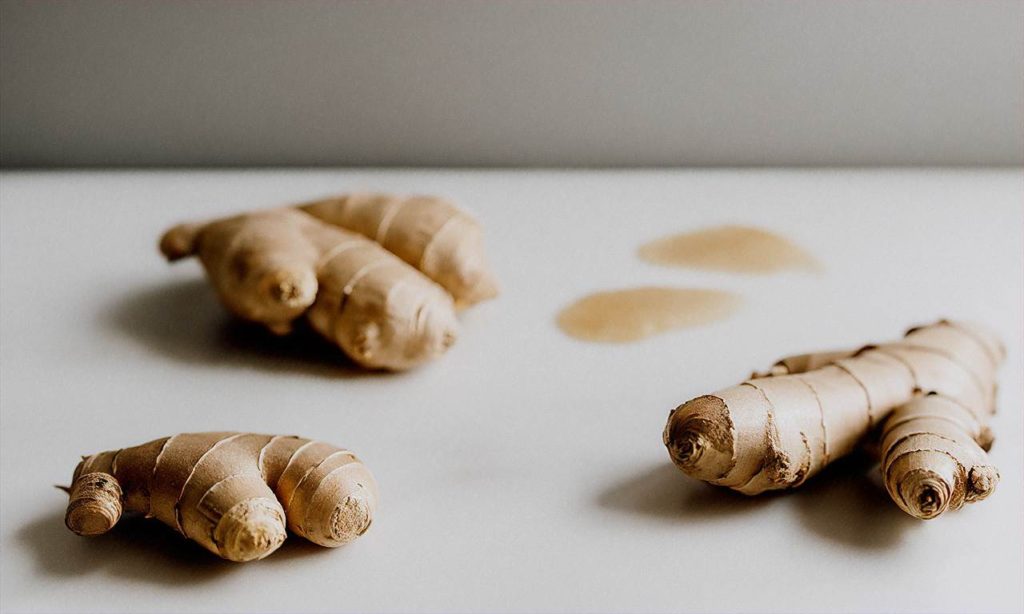
As research continues revealing ginger’s incredible healing powers ranging from its anti-inflammatory properties to ability to ease nausea and muscle soreness, finding ways to incorporate more ginger into your diet can provide some exciting health benefits. With such versatility as an ingredient, creatively using ginger to spice up both sweet and savory dishes can be an easy and delicious way to harness its medicinal potential right from your kitchen.
Ginger Tea, Juice and Supplements
Ginger has been used for centuries as a healing remedy, and with good reason. Modern science is now confirming many of the traditional uses of this pungent root. When it comes to harnessing ginger’s health benefits, there are several easy ways to work it into your routine.
Ginger Tea
One of the most popular ways to consume ginger is in tea form. Ginger tea is simple to prepare – just steep sliced or grated ginger root in hot water for 5-10 minutes. Many people enjoy ginger tea for its ability to ease digestion after meals. Studies show that ginger tea can help with nausea, vomiting, loss of appetite, and motion sickness. The warming and anti-inflammatory properties of ginger tea may also help relieve cold and flu symptoms.
To make ginger tea:
– Peel and slice or grate a 1-inch piece of fresh ginger root
– Steep the ginger slices in a cup of hot water for 5-10 minutes
– Add lemon, honey or other herbs as desired
Drink up to 3 cups of ginger tea per day to harness its healing powers. The frequent consumption of ginger tea may provide relief for several gastrointestinal issues thanks to the healing powers of ginger derived directly from the kitchen into the medicine cabinet.
Ginger Juice
Juicing fresh ginger root is another easy way to incorporate its health benefits into your diet. Ginger juice contains concentrated amounts of gingerol, the main bioactive compound that gives ginger its potent medicinal properties. Research suggests that ginger juice may be especially powerful against nausea and vomiting. The anti-inflammatory effects of ginger juice can also help with joint and muscle pain, as well as cardiovascular and brain health.
To make ginger juice at home, blend grated ginger with a bit of water in a high-speed blender. Start with a 1-inch knob of ginger root per cup of water. Drink up to 2 cups per day, ideally on an empty stomach first thing in the morning. The healing powers of ginger in juice form provides an easy method to transfer its medicine cabinet abilities straight from the kitchen.
Ginger Supplements
Ginger supplements in capsule or tablet form offer a convenient way to get a concentrated dose of ginger’s health benefits. Look for supplements made from fresh organic ginger root for maximum potency. The most researched ginger supplements contain between 500-1000 mg of ginger extract per capsule. This standardized dose can ensure you’re getting an effective amount of ginger’s active compounds like gingerols and shogaols. Research different ginger supplement brands for best quality and value.
Studies suggest ginger supplements may be particularly helpful for relieving nausea, vomiting, digestive issues, inflammation and pain. Ginger supplements have also been shown to reduce risk factors for heart disease and help manage blood sugar levels. For most people, taking 1-2 ginger supplement capsules per day with food is enough to harness many of the healing powers of ginger derived from kitchen origins into easy medicine cabinet accessibility.
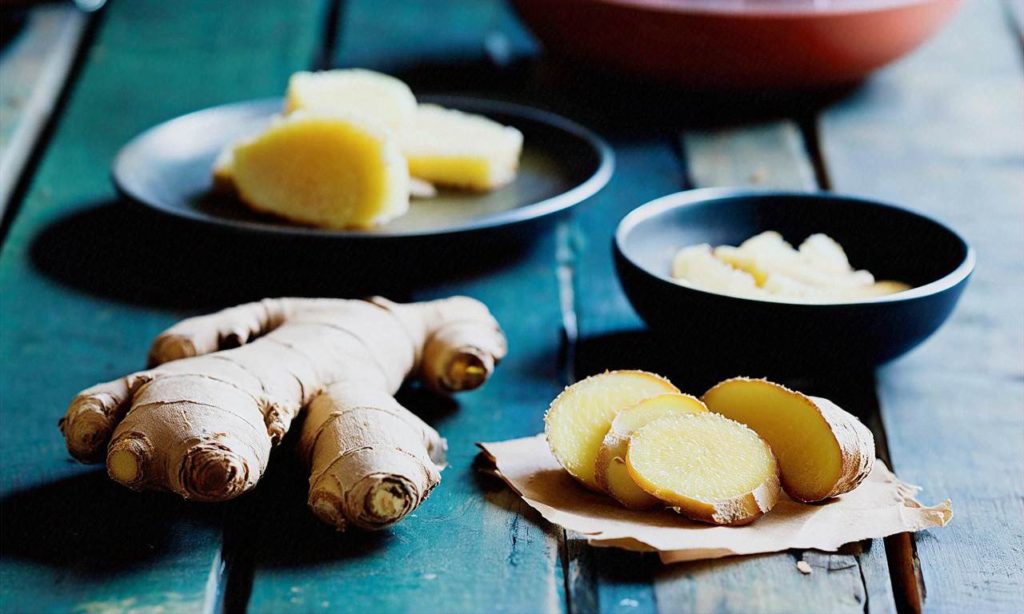
As with any supplement, it’s best to start with lower doses and work your way up to assess tolerance. Speak with your healthcare provider before taking ginger supplements if you take any medications or have a medical condition, as ginger can interact with certain drugs.
Ginger Essential Oil Uses and Benefits
Ginger essential oil has been used for centuries to harness the healing powers of ginger. With its warm, spicy, and energizing scent, ginger essential oil provides a multitude of health benefits.
Ginger Essential Oil for Pain Relief
One of the most popular uses of ginger essential oil is for natural pain relief. The active compounds in ginger oil, like gingerols and shogaols, have analgesic and anti-inflammatory properties. Massaging diluted ginger oil onto sore muscles and joints can provide relief from aches and pain. Ginger oil helps stimulate circulation, bringing warmth to painful areas. It also blocks pain receptors to reduce discomfort.
For menstrual cramps, ginger oil can be massaged onto the lower abdomen. The warming and anti-inflammatory properties help relax muscles and ease cramping. Ginger oil has also been traditionally used to relieve headaches. By rubbing a drop on the temples and forehead, the active compounds can help inhibit pain-causing prostaglandins.
Respiratory Benefits of Ginger Essential Oil
Ginger essential oil has long been used in Ayurvedic practices to help relieve respiratory conditions like coughs, colds, and congestion. When diluted and inhaled, ginger oil can help open up sinuses and clear mucus buildup. The anti-inflammatory compounds like gingerols make breathing easier by reducing inflammation in the nasal passages and lungs.
Ginger oil also has expectorant properties, helping to loosen phlegm and mucus to make coughs more productive. Try adding a couple drops to a steam inhalation to open airways or diffuse at night to relieve nighttime coughing. The antimicrobial activity of ginger oil may also inhibit growth of bacteria and viruses to help fight respiratory infections.
Soothing an Upset Stomach with Ginger Oil
From motion sickness to morning sickness, ginger has a long history of being used to settle uneasy stomachs. Inhaling ginger essential oil can help reduce nausea by activating parts of the brain that control the vomiting reflex. The oil also helps soothe stomach discomfort and indigestion.
Try putting a drop behind your ears, on your temples, or diffusing ginger oil the next time you feel queasy. The warming, energizing aroma of ginger oil can help relieve stomach distress. Ginger oil is even used to prevent seasickness and nausea associated with surgery or chemotherapy. Its ability to quickly ease stomach troubles makes ginger an essential oil medicine cabinet must-have.
The antibacterial activity of ginger essential oil can also help treat gastrointestinal infections that cause diarrhea, nausea, and dehydration. Studies show ginger oil’s active compounds inhibit growth of pathogens like listeria, salmonella, E. coli and staph infections in the gut.
Skin Care Uses for Ginger Essential Oil
With potent antioxidant and anti-inflammatory properties, ginger essential oil is also used to promote skin health. It contains protective compounds like gingerol that can shield skin from free radical damage that causes signs of aging. Ginger oil helps stimulate circulation to give skin a healthy glow while reducing puffiness.
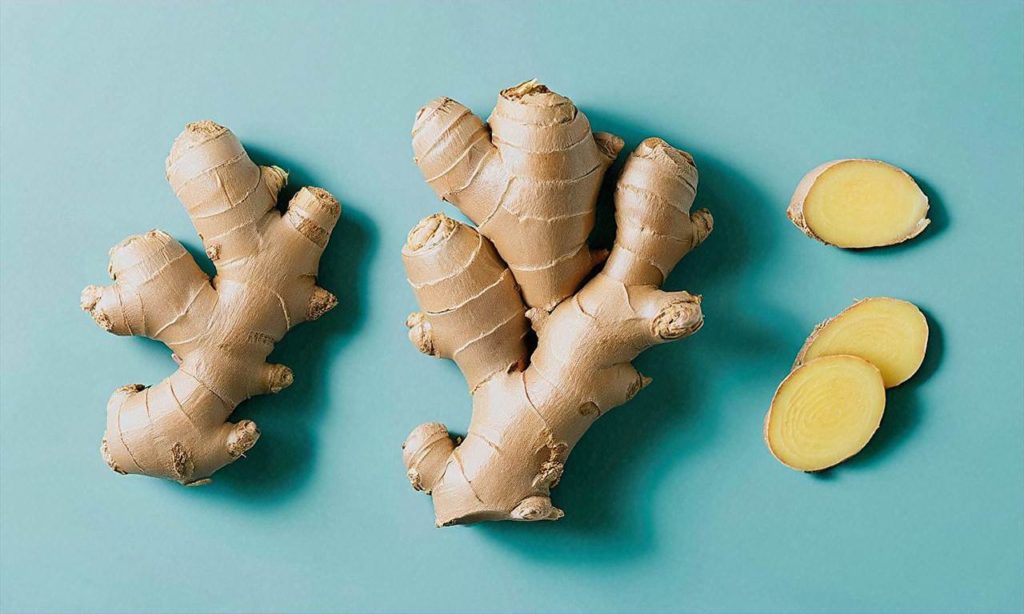
The oil also helps treat inflammatory skin conditions like acne and rosacea. By reducing skin inflammation, redness, and swelling, it can help clear up chronic skin issues. Try adding a couple drops to your normal face wash or night cream to improve complexion.
Ginger oil’s antimicrobial properties also make it useful for treating fungal infections like athlete’s foot or nail fungus when applied topically. Simply add a few drops to a carrier oil and massage onto affected areas twice daily.
The Takeaway: Harness the Healing Potential of Ginger Oil
With its warm, spicy aroma and active medicinal compounds, ginger essential oil is one of the most versatile oils to have on hand. It provides an array of health benefits from easing nausea and pain to respiratory relief and skin care. Ginger oil perfectly captures the essence of this powerful medicinal root that has been relied on for centuries to harness the healing powers of ginger from kitchen to medicine cabinet.
Risks and Precautions for Ginger Use
While ginger is considered safe for most people, there are some risks and precautions to be aware of when using it as a natural remedy.
Interactions with Medications
Ginger can interact with certain medications, including blood thinners and diabetes drugs. People taking these medications should consult their doctor before taking ginger supplements or consuming large amounts of ginger.
Blood Clotting
There are some concerns that ginger may increase bleeding risk or slow blood clotting in some people. People with bleeding disorders or upcoming surgery should use caution with ginger.
Heartburn
Ginger may worsen heartburn in some people. Those with a history of acid reflux or ulcers may want to avoid large amounts of ginger.
Allergic Reactions
Allergic reactions to ginger are rare but possible. Discontinue use if any signs of an allergic reaction develop.
Pregnancy Precautions
While ginger is sometimes recommended for morning sickness, pregnant women should consult their physician before taking ginger supplements. Very high doses may pose risks during pregnancy.
Dosing
Stick to recommended doses for ginger supplements. Consuming very high amounts can sometimes cause stomach upset or heartburn. Check with your doctor about the appropriate ginger dosage for your needs.
Quality and Source
Purchase ginger supplements from reputable sources and choose supplements that have been third-party tested for purity and quality. When cooking with ginger, opt for fresh ginger root over dried ground ginger which loses some compounds over time.
As with any natural supplement, there are some minor precautions to keep in mind when using ginger to harness its healing potential. Consulting your physician can help determine if ginger supplements or increased ginger consumption could benefit your health, as well as finding the safest way to add this ancient medicinal spice into your routine.
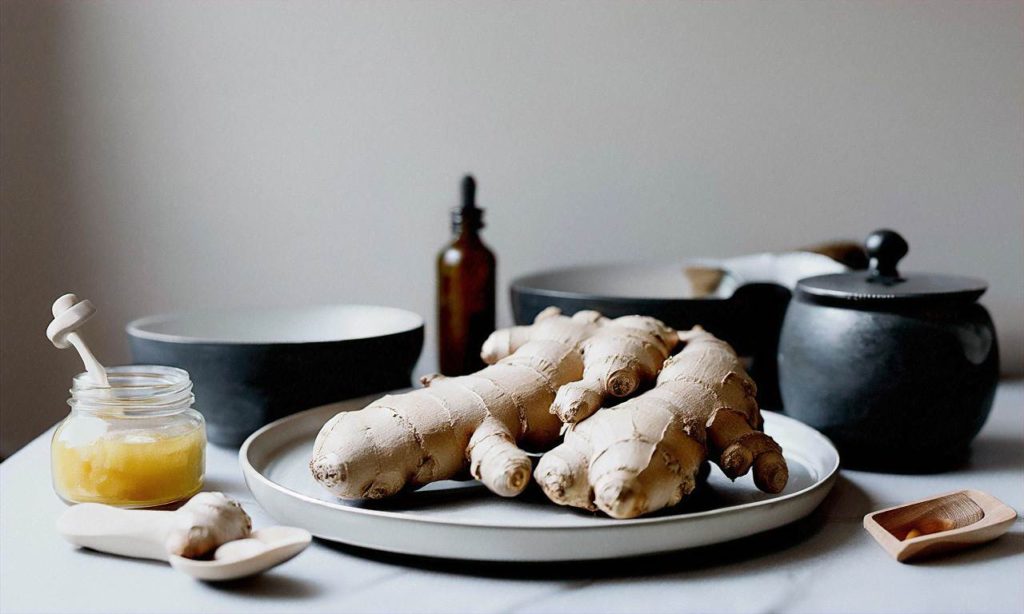
The Takeaway: Harnessing Ginger’s Healing Potential
The Healing Powers of Ginger: From Kitchen to Medicine Cabinet
Ginger has been used as a medicinal herb for thousands of years, but modern science is now confirming its many health benefits. The takeaway is that ginger is more than just a flavorful spice – it is a versatile natural remedy that deserves a place in every kitchen and medicine cabinet.
Harnessing Ginger’s Healing Potential
With its ability to fight inflammation, nausea, muscle pain, and oxidative stress, ginger root is proving itself an effective remedy for a wide range of ailments. Both fresh and dried ginger can be readily worked into recipes and drinks, making it easy to incorporate into your daily routine.
While more research is still needed, the existing body of evidence suggests ginger positively impacts multiple systems in the body in the following ways:
Anti-Inflammatory Effects
Numerous studies have shown ginger exhibits anti-inflammatory properties that rival NSAID pain relievers. The compounds gingerol, shogaol, and zingerone are likely responsible for decreasing inflammation. This can alleviate joint pain, menstrual cramps, and post-exercise muscle soreness.
Immune-Boosting Antioxidants
Ginger contains high levels of antioxidants like vitamin C, beta-carotene, capsaicin, and numerous phytochemicals. Together, these compounds boost immune function and protect cells from damaging free radicals that contribute to chronic disease.
Nausea and Vomiting Relief
Clinical research strongly supports using ginger to ease nausea related to motion sickness, pregnancy, and chemotherapy. Consuming ginger before and during travel can prevent motion sickness with few side effects. Pregnant women may also find relief from morning sickness.
Heart and Diabetes Benefits
While more research is needed, some studies suggest ginger may benefit heart health by lowering LDL cholesterol and hypertension, two major risk factors for heart disease. Ginger may also modestly lower blood sugar and hemoglobin A1c in people with type 2 diabetes when consumed regularly. This indicates it may improve diabetic symptoms when paired with conventional treatment.
Given all of these therapeutic uses, ginger root is one of the most versatile medicinal herbs available. The takeaway is that ginger can be readily worked into your diet and lifestyle to harness its natural healing potential. The healing powers of ginger reach far beyond the kitchen into the medicine cabinet.
Ways to Add More Ginger
Fresh ginger root keeps for up to three weeks when stored properly in the fridge. It can be grated, juiced, pickled, or sliced and added to smoothies, stir fries, curries, and teas for an anti-inflammatory boost. Dried ground ginger works well in baked goods like ginger molasses cookies or gingerbread. Candied ginger also makes for a healthy treat.
When buying fresh ginger, look for plump, smooth roots with taut skin. Wrinkled or dried-out ginger will have less flavor and nutritional value. See our recommended recipes using fresh ginger:
– Ginger Turmeric Tea
– Carrot Ginger Soup
– Ginger Salmon Bowl
Ginger Supplements
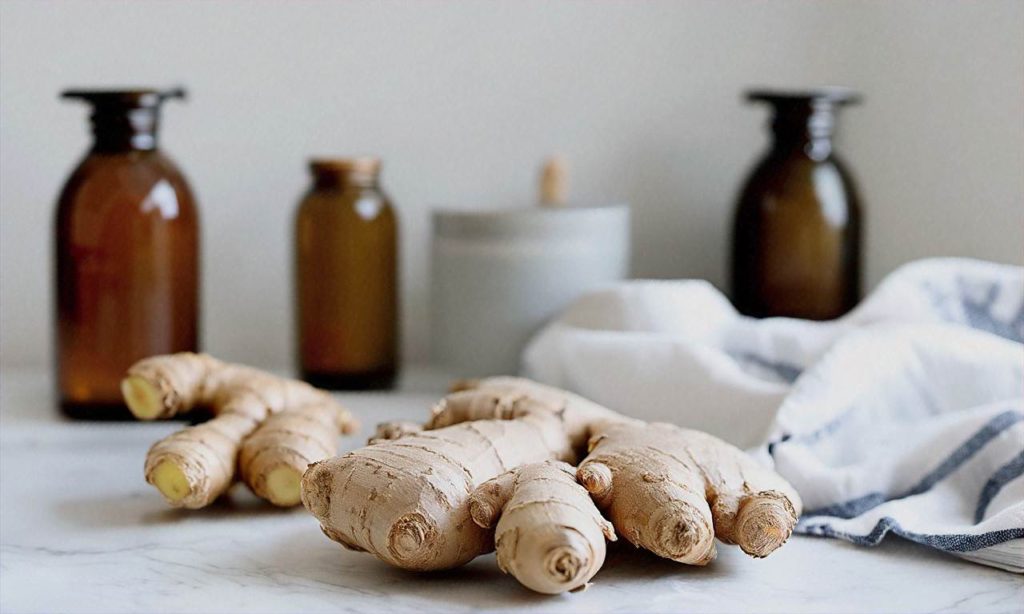
For those looking to take a more concentrated medicinal dose, ginger is available in capsule, tincture, extract, lozenge, and essential oil form. Always follow dosing instructions carefully when using supplements. Consult your doctor before taking ginger extracts or essential oil if you take any medications or have a medical condition, as ginger can potentially interact with certain drugs.
The Takeaway: Harness Ginger’s Healing Potential
In conclusion, ginger root contains a powerful combination of compounds with medicinal properties spanning many therapeutic uses. Science continues to uncover its anti-inflammatory, antioxidant, and anti-nausea effects. Harnessing ginger’s healing potential is as simple as incorporating fresh or dried ginger into your recipes, drinks, and snacks. With its safety and versatility as a remedy, ginger is an aromatic healer that can move from your kitchen into your medicine cabinet.
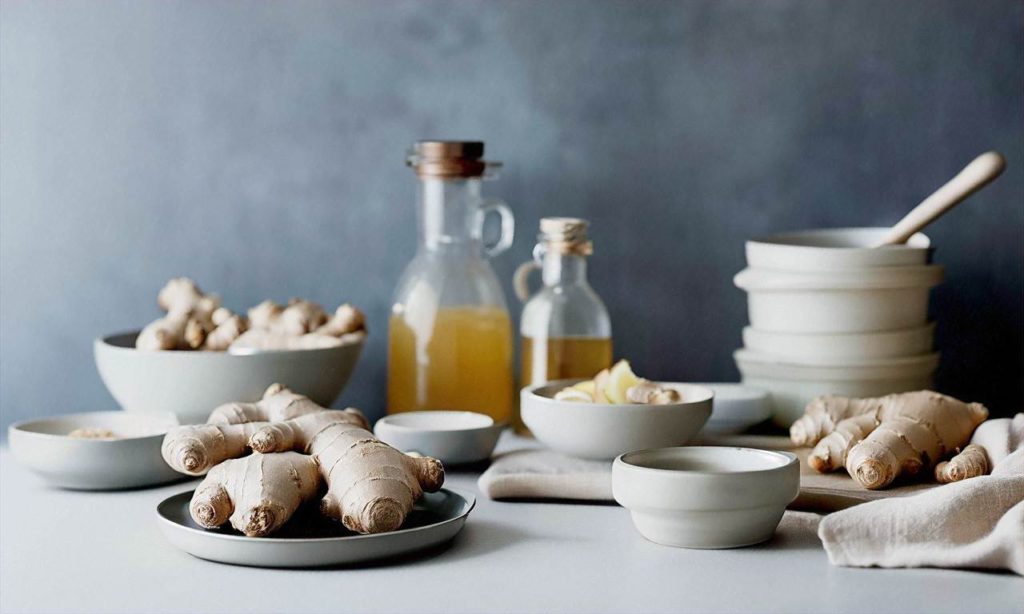
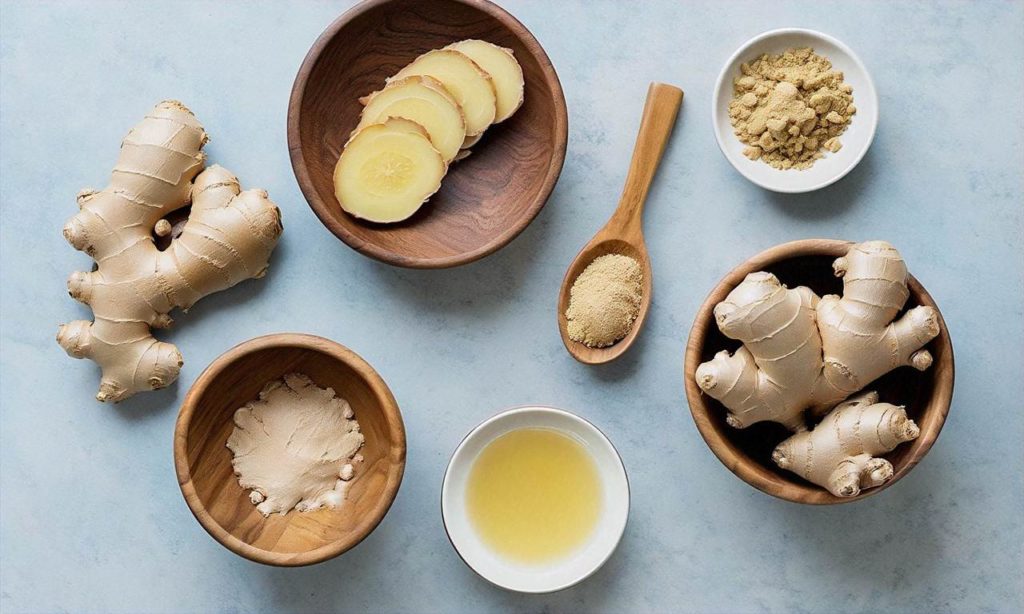
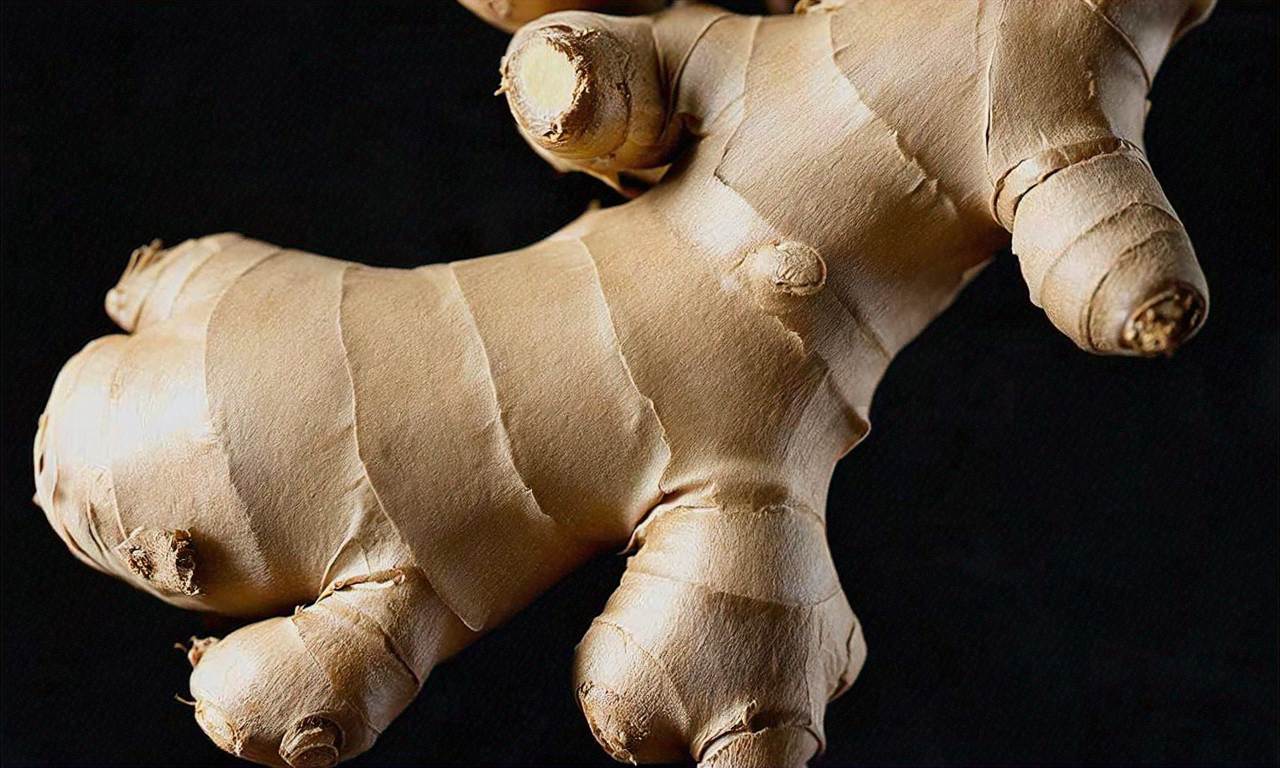




No comment yet, add your voice below!